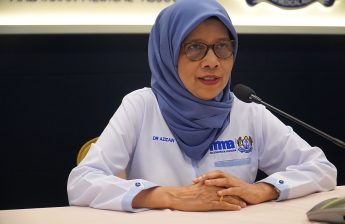The Chinese vaccines are rapidly making inroads into the Malaysian marketplace. After the 39 per cent Pfizer-BioNTech, 10 per cent AstraZeneca-Oxford and 10 per cent COVAX advance bookings, there is now reportedly a 22 per cent booking of the Sinovac vaccine.
China’s Sinovac Lifesciences Co Ltd manufactures the inactivated vaccine, CoronaVac, which is administered intramuscularly, two doses, two weeks apart. It can be stored in a standard refrigerator at 2-8 degree Celsius, unlike the sub-zero temperatures required for the mRNA vaccine.
It is the only Chinese vaccine with published Phase One/Two trials in the Lancet, which found no severe adverse effects and produced an immune response on 743 volunteers.
In July 2020, while still undertaking the Phase One/Two trials, the Chinese government gave CoronaVac emergency approval for early and limited use in high-risk persons.
Sinovac launched Phase Three trials in three countries, Brazil, Indonesia and Turkey. In December 2020, researchers in Turkey announced a Phase Three trial efficacy of 91.2 per cent. Researchers in Brazil initially said it was 78 per cent effective in their clinical trials, but in January 2021 revised that figure to 50.4 per cent.
Bio Farma, an Indonesian state-owned pharmaceutical firm and the country’s only vaccine producer, partnered with the University of Padjajaran to conduct the Phase Three trials in Indonesia which achieved an efficacy rate of 65.3 per cent. President Joko Widodo and his counterpart in Turkey, President Reccip Erdogan, have since been vaccinated with the CoronaVac vaccine.
Sinovac officials said that there are no safety concerns with Adverse Effects Following Immunisation (AEFI) rates of less than 5 per cent.
Indonesia’s vaccine manufacturing plant Bio Farma makes and supplies EPI (WHO Expanded Programme on Immunisation) vaccines for both local use and export. It’s involvement in the Phase Three trials, has given it a head start with the acquisition of 1.2 million doses CoronaVac vaccines on 6 December, 2020, and a second consignment of 1.8 million doses on 31 December, 2020.
CoronaVac has been registered and approved for emergency use in China, Chile, Brazil, Indonesia and Turkey. However, the National Pharmaceutical Regulatory Agency (NPRA) has yet to approve the use of the vaccine.
Sinovac plans to roll out about 600 million doses in 2021. On 12 January, Pharmaniaga signed a deal to purchase ready-to-fill Covid-19 vaccines, with the added option of being able to manufacture the vaccine domestically.
The other Chinese vaccine is Sinopharm, made by the state-owned Beijing Institute of Biological Products, which created two inactivated coronavirus vaccines. It is injected into the deltoid muscles, two doses three weeks apart. Storage, like the Sinovac vaccine, is in an ordinary refrigerator at 2-8 degrees Celsius.
Whie still in Phase One/Two trials in June 2020, early and limited use was sanctioned by the Chinese government for health care workers, embassy staff and other frontline and essential workers. In November 2020, the company claimed that one million volunteers had been immunised. In Sep 2020, the United Arab Emirates (UAE) gave license for the early and limited use of the Sinopharm vaccine for health care workers.
Phase Three trials were started in Morocco and Peru in July 2020. In December 2020, a 79.3 per cent efficacy was announced. Meanwhile, the United Arab Emirates said the vaccine was 86 per cent effective, according to interim results of its Phase Three trial. Sinopharm declined to explain the discrepancy in the efficacy rates. There have been no publications in peer-reviewed journals. Both the UAE and Bahrain have since given full approval.
It is reported that the ACE Market-listed Kanger International Bhd, known for its bamboo flooring manufacturing, is partnering with Sinopharm to distribute the vaccines to the private sector in Malaysia.
Two other Covid-19 vaccines are under development in China. CanSinoBio has a candidate vaccine called Convidecia. Like the AstraZeneca-University of Oxford vaccine, it is based on a viral vector vaccine technology (Adenovirus). It too was granted early and limited use by the Chinese government in June 2020.
Anhui Zhifei Longcom, the fifth Chinese vaccine uses a purified protein of the virus to trigger an immune response. In December 2020, it began Phase Three trials. The company has signed a Memorandum of Understanding (MoU) with MyEG.
We await the publication of the Phase Three trials of the Chinese vaccines in peer-reviewed journals. Only then can the claims made by the vaccine manufacturers can be verified in terms of efficacy and safety.
It is most unusual to allow vaccines in Phase One/Two trials to be licensed. Therefore, Western scientists are concerned by the Chinese move to allow early and limited use in selected segments of the population, and have remained sceptical and cautious about the claims of the Chinese manufacturers.
The NPRA must carefully analyse the research studies of the five Chinese vaccine manufacturers. It is very important to ensure that they are efficacious and safe as claimed in order to protect the community and to enhance vaccine confidence.
Singapore, Malaysia and the Philippines have signed deals with Sinovac, and Indonesia have already rolled out the Sinovac vaccines in its mass vaccination campaign.
China is leveraging on the Covid-19 vaccine for both commercial gains and diplomatic ties. The countries least able to gain access to early vaccine supplies are looking at China to fill the void, namely developing countries in Asia, Africa, Latin America and the Caribbean.
It is still not clear how much the Chinese vaccines will cost. Bio Farma said it will cost around 200,000 rupiah (US$13.60) locally. With the fill and finish being undertaken by Pharmaniaga at its plant in Puchong, it is hoped that it would cost considerably less than the ones shipped from China.
- This is the personal opinion of the writer or publication and does not necessarily represent the views of CodeBlue.






